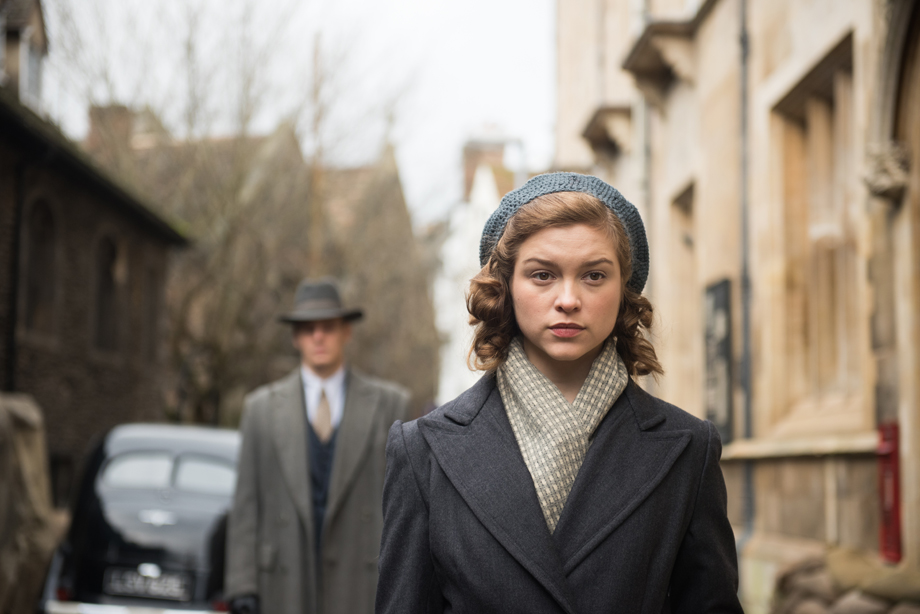What lengths would you go to if you believed you could bring about world peace?
It’s a fascinating question around which to build a film like Trevor Nunn’s Red Joan, a story inspired by the complex and intriguing actions of one of the USSR’s most significant British spies. Too bad the film is a cliched, overly-simplistic bore that never lives up to the promise of the premise.
Red Joan opens with an 80-odd year old Joan (Judi Dench) being arrested by police officers who accuse her of treason. She’s sat down in a room, the police start asking questions about her past, and so begins the cavalcade of flashbacks that led up to her apprehension. It’s not too long into the first of these flashbacks that you realise it is not this Joan, but the younger version of her, played by Sophie Cookson, that viewers will be spending the most time with. We only see Dench in a scattering of moments in which the film shows her staring at a wall, or uttering a line or two before fading back into memory.
These memories follow Joan throughout the 1930s, as she studies physics at Cambridge University and mingles with members of the socialist club. Here she meets and falls in love with Leo (Tom Hughes), a Russian radical who convinces her that the world should burn and be built anew on a foundation of Communist doctrine.
Or does he? It’s never quite clear. Joan assures her interrogators that she never officially joined the socialist’s club, and is later seen disparaging the future of Stalin’s Russia. That doesn’t stop her, however, from stealing plans for Britain’s nuclear bomb program and giving them to Leo and his co-conspirators after she gets a job at a top-secret government lab.

The police and her son Nick (Ben Miles) ask her why she did it, but Older Joan continues to claim she’s innocent, even as all this unfolds on screen. Eventually, after several more flashbacks, we get the answer: after seeing the devastation in Hiroshima, she believed the only way to establish mutually assured peace between nations would be to establish the means for mutually assured destruction between Russia and its Cold War enemies.
For such an intelligent character, her logic leaves a lot to be desired.
Red Joan is stated to be based on the life of Melita Norwood, the “granny spy” who really did sell secrets to the Soviet Union. However, besides the fact she worked as a secretary in a laboratory that was developing England’s atomic bomb, the rest of the story comes from Jennie Rooney’s novel of the same time. It’s a real shame. Norwood was a red-blooded Communist who did what she did because she believed in the USSR. No doubt Joan would have proved less likely if she was the same, but the film could have used some of the philosophical passion that makes spies – especially traitorous ones – such intriguing figures. Instead, we watch Joan pine over Leo or her new boss, Max (Stephen Campbell Moore), or get talked down to by men in some of the most cartoonish portrayals of sexism seen this side of the #MeToo movement.
Meanwhile, Dench just continues staring at the wall.
The film’s ending is as confounding and illogical as you’d expect having watched the rest of it. Dench deserves better. Cookson deserves better. Even Norwood deserves better. With such strong actors and an interesting premise, how Red Joan came to be so mundane and silly is beyond me.
—
Red Joan opens in Australian cinemas on June 6th.
